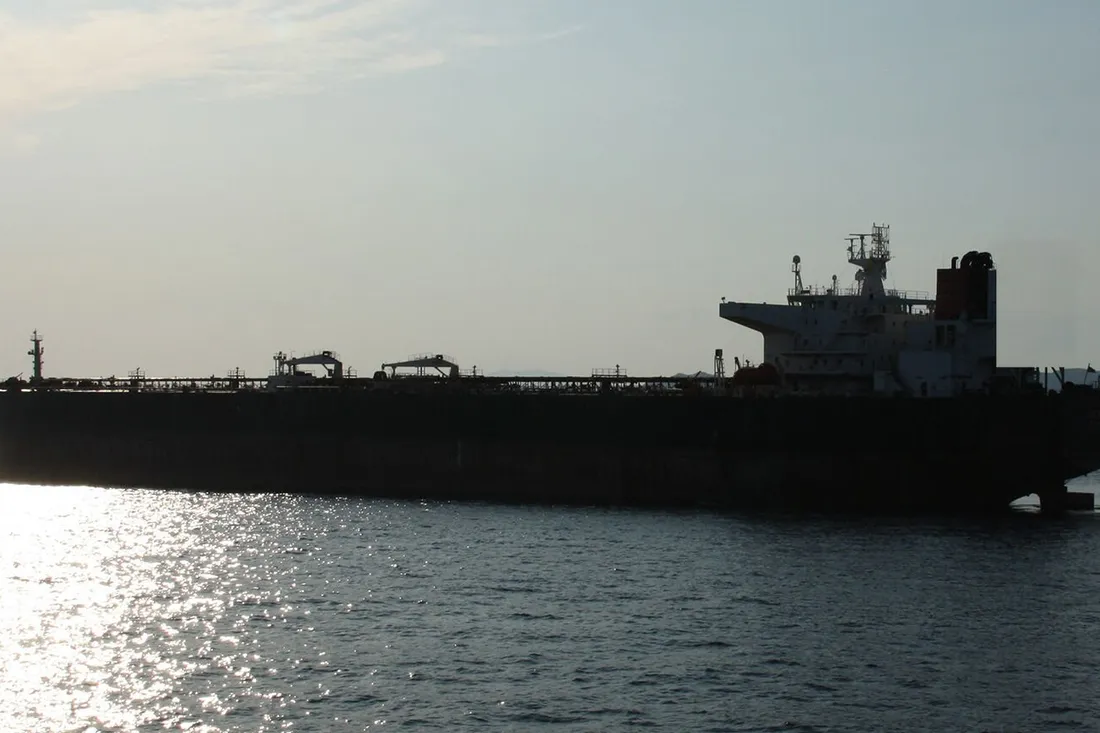Sanctioned Vessel Noble Walker Diverts to Vadinar After Adani’s Ban on Blacklisted Ships
A sanctioned crude oil tanker carrying Russian supplies has altered its destination to India’s Vadinar port after being denied access to Mundra, following the Adani Group’s recent order barring blacklisted ships from its facilities.

According to shipping data released on Monday by LSEG and Kpler, the vessel Noble Walker—carrying around one million barrels of Russian crude destined for HPCL Mittal Energy Ltd (HMEL)—was until late last week charted to unload at Mundra port in Gujarat. The ship abruptly changed course after Adani’s announcement and is now heading toward Vadinar, another key port on India’s western coast that handles crude imports for multiple refiners.
The Noble Walker is owned by Mancera Shipping, according to LSEG data. However, efforts to contact the company have so far been unsuccessful, and HMEL did not respond to a Reuters request for comment regarding the diversion.
The tanker is among several vessels placed under European Union and United Kingdom sanctions for alleged breaches of restrictions related to the transport of Russian oil. These sanctions form part of wider measures aimed at cutting Moscow’s revenue stream from crude exports, which remain central to financing its economy following the 2022 invasion of Ukraine.
Last week, Adani Ports and Special Economic Zone Ltd., which operates 14 ports across India including the giant Mundra terminal, issued directives banning vessels sanctioned by the EU, Britain, or the United States from docking at its facilities. The order was widely viewed as a precautionary step to safeguard Adani’s global operations and financial exposure amid rising international scrutiny of sanctions compliance.
Mundra, one of India’s busiest private ports, is a regular gateway for crude shipments by refiners such as HMEL and Indian Oil Corporation (IOC). But the decision to block sanctioned ships has forced importers to reconfigure supply chains almost immediately. The diversion of the Noble Walker marks the first visible sign of how these restrictions are reshaping tanker traffic in Indian waters.
For refiners, the ban presents logistical headaches. While the cargo remains on course for India, the need to switch unloading locations adds both uncertainty and potential cost. Vadinar, where the Noble Walker is now heading, is equipped to handle large crude consignments but is already heavily utilized by other refiners, raising concerns about scheduling congestion.
India has emerged as the largest buyer of seaborne Russian crude since 2022, seizing the opportunity to secure discounted oil supplies shunned by Western nations. These purchases have been crucial in meeting the country’s energy demand while keeping fuel costs in check for domestic consumers.
However, the reliance on Russian imports has also placed New Delhi in a delicate diplomatic position. While India has consistently maintained that its purchases are guided by energy security needs, it has simultaneously tightened oversight of shipping and financial transactions linked to Russian cargoes.
Industry insiders say that Indian refiners remain keen to continue sourcing Russian crude as long as supplies are available at favorable terms. But the rising complications from sanctions—ranging from difficulties in securing vessels to payment settlement challenges—have started to create operational friction.
A significant portion of Russian oil exports are now carried by a so-called “shadow fleet” of tankers—older vessels often registered under obscure flags and managed through shell companies. These ships are used to circumvent restrictions imposed by Western nations and continue delivering crude to markets in Asia, particularly India and China.
The Noble Walker fits into this category of tankers flagged by regulators for sanctions violations. Western officials argue that such ships increase risks of non-compliance, insurance lapses, and environmental hazards, given their opaque ownership and management structures.
By barring sanctioned ships from its ports, Adani has effectively limited refiners’ ability to use some of these vessels, even though the underlying crude remains permissible under Indian law. The move highlights how private port operators, not just governments, are now playing a critical role in enforcing sanctions-linked restrictions.
The Noble Walker is not the only sanctioned vessel making headlines in Indian waters this week. Ship tracking data shows that another tanker, the Spartan, a Suezmax-class vessel carrying about one million barrels of Russian crude, was anchored off Mundra on Monday. According to Kpler, the vessel had been scheduled to discharge its cargo at the port the same day.
It remains unclear whether the Spartan will also have to divert to another location in line with Adani’s new orders. The ship’s presence near Mundra underscores the sudden disruptions facing refiners, traders, and port authorities as they attempt to adjust to the tightened compliance environment.
For now, the redirection of the Noble Walker to Vadinar ensures that its cargo will still reach HMEL, albeit through a different logistical path. But industry experts warn that more such diversions could be on the horizon as long as refiners rely heavily on Russian crude shipped aboard shadow fleet vessels.
“The refiners want the oil, but the ports are now looking closely at the vessels,” said a Mumbai-based shipping analyst. “This tug-of-war between sanctions compliance and energy needs will only intensify.”
As India continues to navigate this balance, refiners may face increasing costs and complications in securing supplies. For port operators like Adani, the priority will remain ensuring compliance with international sanctions to protect their broader business interests.
In the coming weeks, market watchers will be looking closely at how many more sanctioned vessels attempt to enter Indian ports and whether refiners can adapt by securing non-sanctioned tonnage for Russian cargoes. For now, the diversion of the Noble Walker stands as a stark reminder of how sanctions thousands of miles away can ripple through India’s vital energy supply chain.
Author: shipping inbox
shipping and maritime related web portal









